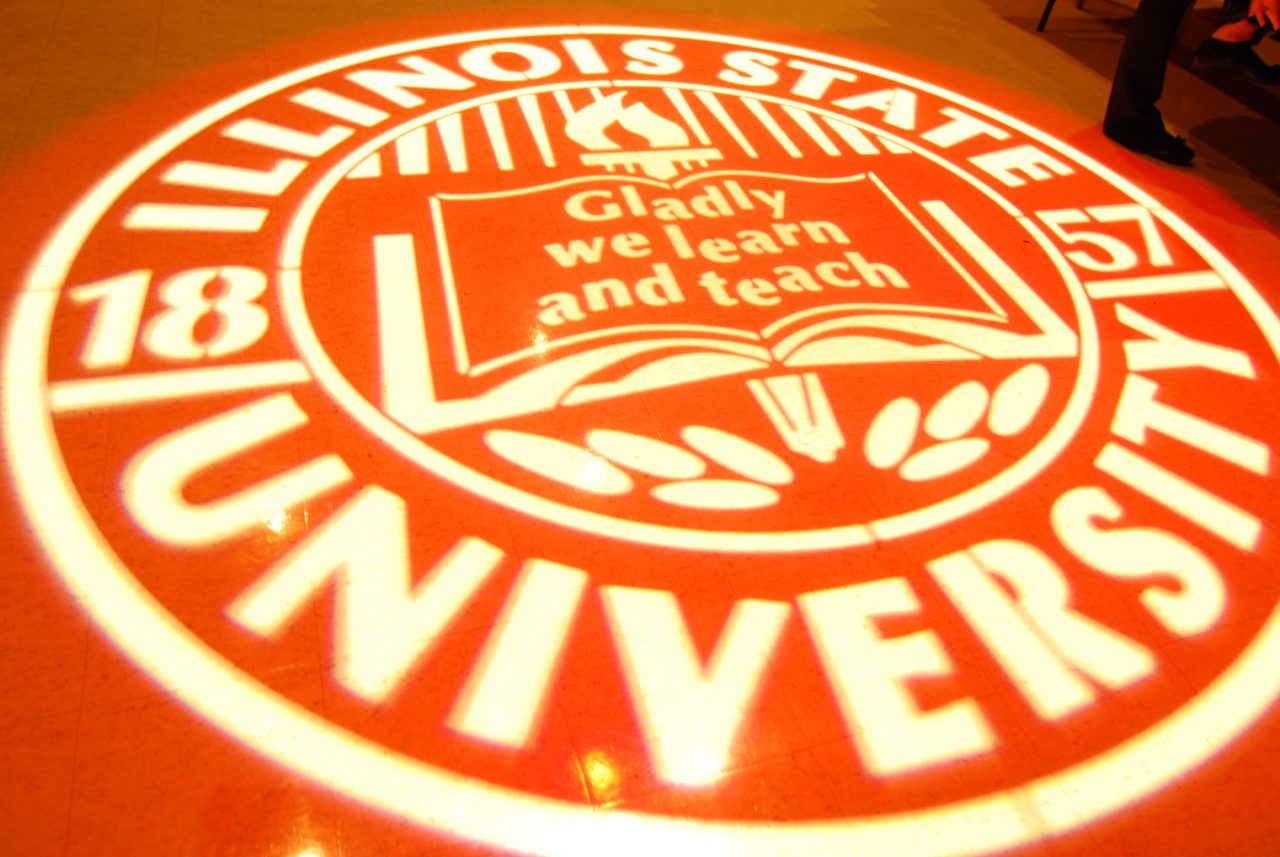Tiffany Tiberi is first and foremost a counselor to students looking for one-on-one guidance. But since coming to Illinois State University a year and a half ago, she has also created a space for herself as an advocate and educator.
As a psychologist in Student Counseling Services, Tiberi’s area of expertise and interest is in lesbian, gay, bisexual and transgender (LGBT) issues. She helps students cope with feelings of isolation, family rejection, stress and anxiety related to sexual orientation or gender identity. She aids students who may be trying to figure out who they are or how they can navigate a healthy life on campus.
“As a member of the LGBT community, it is very fulfilling professionally and personally for this to be part of my work as a psychologist,” she said.
In addition to providing individual support to students, Tiberi also works as a campus-wide advocate through education and outreach. She has addressed campus climate-related issues as a classroom guest lecturer and speaker for Diversity Advocacy Safe Zone brown bag discussions.
“Part of my job involves educating the campus community about LGBT issues and increasing everyone’s knowledge and awareness of the impact that discrimination, harassment and hateful language can have on the well-being and mental health of LGBT people.”
She also maintains a connection to the LGBT student group People Realizing Individuality and Diversity through Education (PRIDE), providing consultation and support in developing programming related to mental health or personal development issues.
One such chance for Tiberi to offer that support came at a critical time last semester when there was, as she described, “nationally sort of an eruption of LGBT teen suicides.” Members of PRIDE sprang to action to organize a meeting devoted to suicide prevention in the LGBT community. Tiberi provided information and resources at the meeting and discussed the warning signs of suicide and how they can support one another should they or someone they know have thoughts of suicide.
Along with education, Tiberi believes that institutional policies relating to everything from student housing to partner benefits for faculty and staff are essential in promoting inclusivity, respect and safety. Tiberi cited research that has found that how welcoming a campus is to LGBT students, faculty and staff can significantly influence not only individual health and well-being, but also academic performance and retention.
“If we feel supported and safe on campus, we are more likely to stick around. To create a space for folks to talk about those issues and to figure out ways to make ISU a welcoming and safe place for all LGBT people is really important to me.”
Tiberi lauded the positive things happening on campus while acknowledging there is always room to grow and improve. She has done similar work at other universities and has taken notice of successes on those campuses and what she would like to see happen at Illinois State. She was encouraged by examples of universities that acknowledge and celebrate LGBT issues in an ongoing way. Keeping the issues visible and giving the campus community ample opportunity to learn and discuss will be instrumental in Illinois State’s continued progress.
“The Diversity Advocacy office is constantly trying to do that type of work here and I commend them for that,” Tiberi said. “Hopefully the ongoing education makes the issues more accessible to the campus community.”
Personal experiences of the LGBT campus community are often indicators of the University’s progress. Tiberi takes her own experience into account and lends an ear to others.
“I have felt safe and supported by my department on campus. And one of my roles as a psychologist is to listen and gather information, so I am frequently talking to faculty, staff and students to learn about their experiences. I have heard from students who have had both positive experiences and painful experiences and don’t feel supported. It is important to listen to what’s going well here and how can we build on that, and what isn’t going well and what needs to change institutionally to support these students and staff on campus.”
While ongoing education and policy development contribute to an inclusive climate on campus, Tiberi also emphasized how crucial individual interactions are in making people feel supported and safe. When individuals are victimized, bullied or harassed, it decreases their feelings of safety and increases the risk of anxiety, depression and substance abuse, which are risk factors for suicide. She also noted how flippant remarks like “that’s so gay” are hurtful.
Tiberi urges everyone to not only be mindful of their own language, but to speak up and challenge those who make homophobic or anti-gay remarks and seek to understand rather than make judgments or assumptions.
“Everyone has their own background, beliefs and value systems. All of us come to this university with different history, different levels of experience. Everyone’s learning process is a little bit different,” she said. “We are all at an educational institution. People are here to learn and I hope that they take those opportunities to educate themselves and learn about people who are different and develop a sensitivity of how language that we use can impact someone.”

